 In his “Front Matter” editor’s note to the July/August 2019 issue of Kenyon Review, David H. Lynn announces his intention to step down from his role as The David F. Banks Editor of the publication:
In his “Front Matter” editor’s note to the July/August 2019 issue of Kenyon Review, David H. Lynn announces his intention to step down from his role as The David F. Banks Editor of the publication:
“. . . about a year from when this issue arrives off the press, I’ll be stepping down as editor. The decision came to me rather suddenly, I confess, and several years earlier than I’d previously imagined. What had long seemed a comfortable bike ride, despite occasional potholes and sudden challenging hills that maintained my interest and attention, was now unexpectedly weighing in my legs and on my shoulders. I was growing a bit weary and impatient for other vistas, other challenges.”
In discussing the role and responsibilities of editor, Lynn responds to the label of gatekeeper :
“It’s hostile and resentful, suggesting that the role of literary editors is to maintain high barriers. With all my heart, however, I believe that the appropriate charge for an editor of the Kenyon Review is to resist any such notion of guardianship, of excluding any class or set of writers. Rather, whoever is appointed to follow me, she or he or they, should continue to seek to include, to aggressively search out new voices and new talents and even new media with which to publish them, while also nourishing and supporting many of those talented authors we have discovered and honored for the past two decades and more.”
We wish Lynn a smooth transition away from his wonderful work with Kenyon Review – may he indeed be met by beautiful vistas and invigorating challenges.

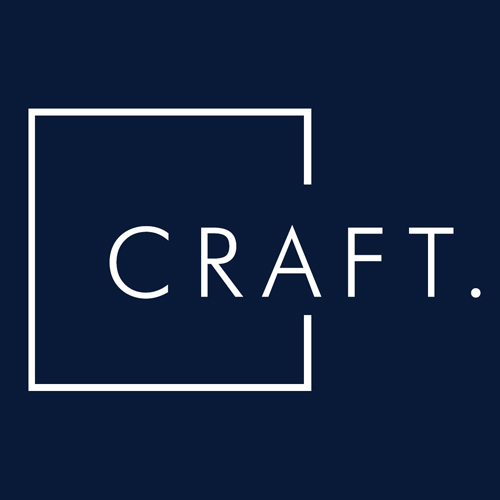 CRAFT Literary
CRAFT Literary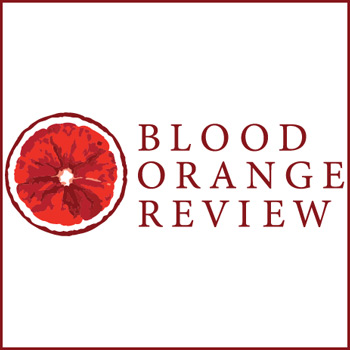 The latest issue of
The latest issue of 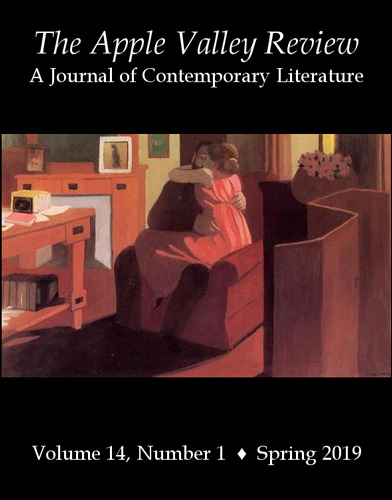 Our families and the people we care about affect much of how we feel or what we do in life, so it’s appropriate that many of the poems in the Spring 2019 issue of
Our families and the people we care about affect much of how we feel or what we do in life, so it’s appropriate that many of the poems in the Spring 2019 issue of 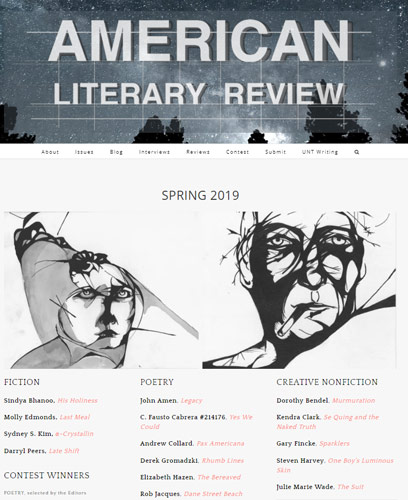 In the latest issue,
In the latest issue, 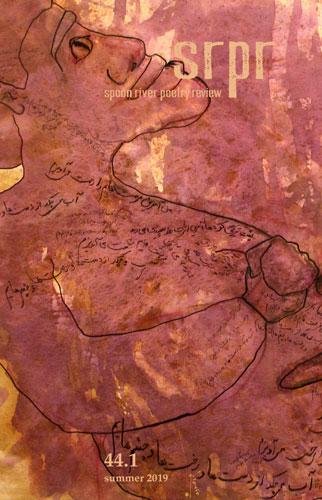 A recent series of poems by Jeannine Hall Gailey in the
A recent series of poems by Jeannine Hall Gailey in the 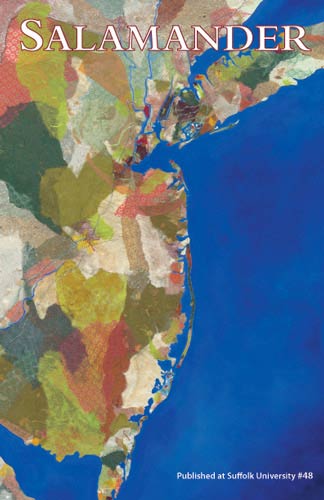 After twenty-seven years, Jennifer Barber has left her position as Editor-in-Chief of
After twenty-seven years, Jennifer Barber has left her position as Editor-in-Chief of  Cutting, strange, and daring are the words
Cutting, strange, and daring are the words  Crazyhorse
Crazyhorse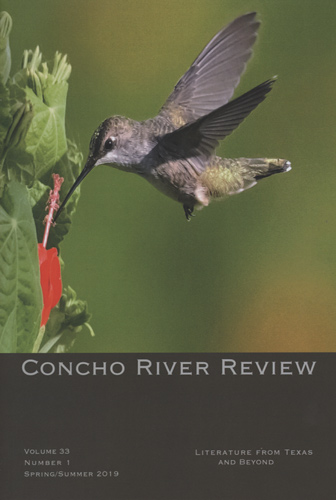 It doesn’t matter if you gravitate toward fiction, nonfiction, or poetry when cracking open a new issue of literary magazine—the Spring/Summer 2019
It doesn’t matter if you gravitate toward fiction, nonfiction, or poetry when cracking open a new issue of literary magazine—the Spring/Summer 2019 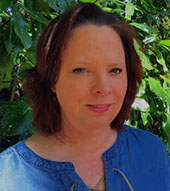 Wish I could have been at this party:
Wish I could have been at this party: 
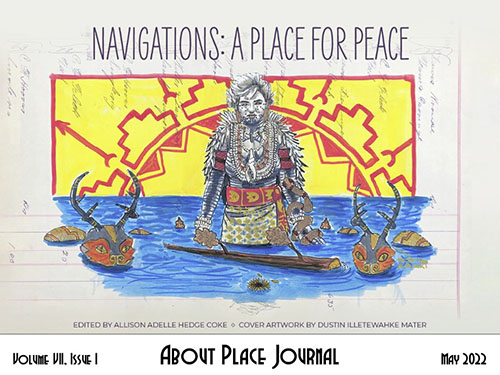 Published by the Black Earth Institute, dedicated to re-forging the links between art, spirit, and society, the May 2019 issue of
Published by the Black Earth Institute, dedicated to re-forging the links between art, spirit, and society, the May 2019 issue of 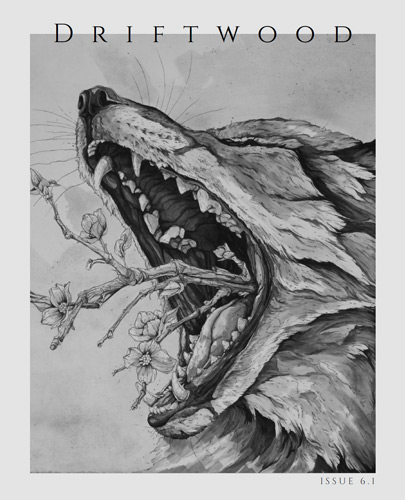 In 2018,
In 2018, 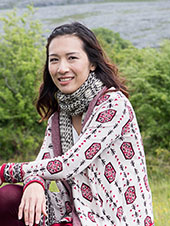 Adding an interview almost every month,
Adding an interview almost every month, 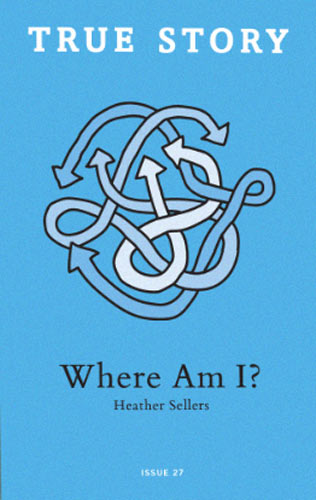 If my mother and I walk out of a store into the center of the mall or exit a building onto any town’s main street, there’s a 95% chance she’ll ask me which way we came from and which way we’re now headed. If we park in a crowded lot, she follows as I lead to her hidden car. When I’m with her, I am the navigator, the way-finder.
If my mother and I walk out of a store into the center of the mall or exit a building onto any town’s main street, there’s a 95% chance she’ll ask me which way we came from and which way we’re now headed. If we park in a crowded lot, she follows as I lead to her hidden car. When I’m with her, I am the navigator, the way-finder.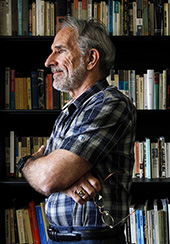 The basic stories in much of our canon of literature are hardly subtle. Their power and wisdom come from the discoveries about human nature and behavior through characters and their struggles. Beware of pride-bound, stubborn, pigheaded leaders—yes and beware of the idea that the themes of classic literature are “irrelevant” today. The resiliency of literature comes also in the clear and perfect expression of the moments and moods of life through language, many examples of which cannot be forgotten—Hamlet with the skull of his jester, Keats and his nightingale, or the sheer poignancy of Nick Carroway at the end of Daisy’s dock, looking out on the green light, thinking “So we beat on, boats against the current, borne back ceaselessly into the past.”
The basic stories in much of our canon of literature are hardly subtle. Their power and wisdom come from the discoveries about human nature and behavior through characters and their struggles. Beware of pride-bound, stubborn, pigheaded leaders—yes and beware of the idea that the themes of classic literature are “irrelevant” today. The resiliency of literature comes also in the clear and perfect expression of the moments and moods of life through language, many examples of which cannot be forgotten—Hamlet with the skull of his jester, Keats and his nightingale, or the sheer poignancy of Nick Carroway at the end of Daisy’s dock, looking out on the green light, thinking “So we beat on, boats against the current, borne back ceaselessly into the past.” Cutthroat: A Journal of the Arts
Cutthroat: A Journal of the Arts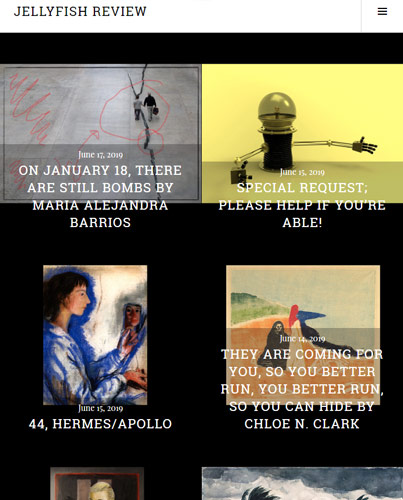 In response to the recent abortion bans in the United States,
In response to the recent abortion bans in the United States,  The Courtship of Winds
The Courtship of Winds “In my view, writing, at least literary writing, is not just a matter of inventing out of whole cloth or drawing on things we remember, but also of accessing sought-for words and connections. Do we, when we’re writing, reach in to actively find the parts of our next sentences, or are those ‘given’ to us? It often feels like the latter, which naturally makes me wonder through what agency. As Joseph Brodsky wrote somewhere, life is a gift, and where there is a gift there must be a giver.”
“In my view, writing, at least literary writing, is not just a matter of inventing out of whole cloth or drawing on things we remember, but also of accessing sought-for words and connections. Do we, when we’re writing, reach in to actively find the parts of our next sentences, or are those ‘given’ to us? It often feels like the latter, which naturally makes me wonder through what agency. As Joseph Brodsky wrote somewhere, life is a gift, and where there is a gift there must be a giver.”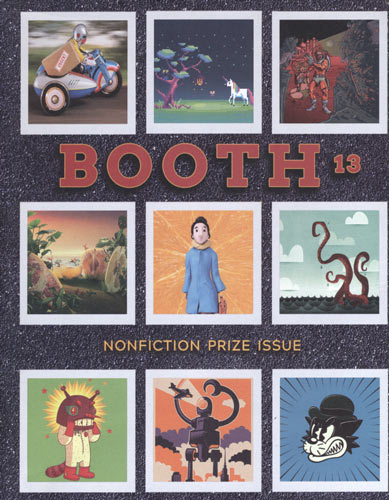 The cover of
The cover of 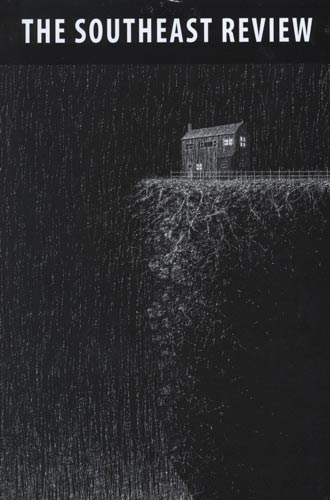 Spanning four pages of
Spanning four pages of  The Spring 2019 issue includes fourteen tiny essays on a range of topics including ‘caregiving for a parent with dementia’ (
The Spring 2019 issue includes fourteen tiny essays on a range of topics including ‘caregiving for a parent with dementia’ (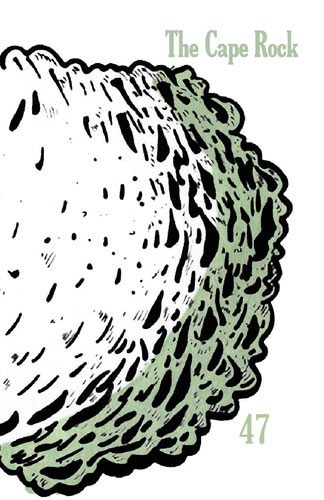 It only takes looking at some of the poem titles in
It only takes looking at some of the poem titles in 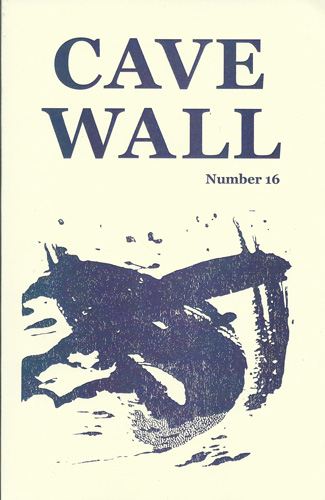 Cave Wall
Cave Wall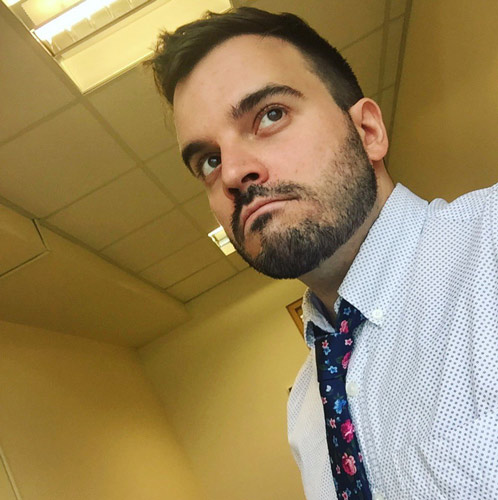 It was the illustration by
It was the illustration by  The Summer 2019 issue of
The Summer 2019 issue of  In his Spring 2019 “Welcome Readers” section, founder and editor M. Scott Douglass explains his plan to “retire from editing”
In his Spring 2019 “Welcome Readers” section, founder and editor M. Scott Douglass explains his plan to “retire from editing” 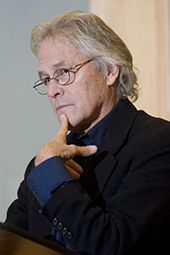 In 2016, Peter Stitt, founding editor of
In 2016, Peter Stitt, founding editor of 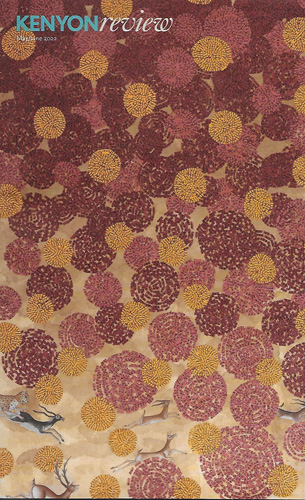 Kenyon Review
Kenyon Review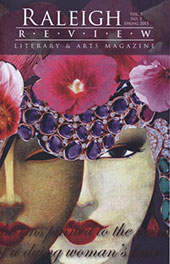 With its Spring 2019 issue,
With its Spring 2019 issue, 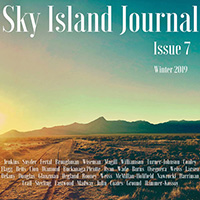 Jason Splichal, Founder and Co-Editor-in-Chief of
Jason Splichal, Founder and Co-Editor-in-Chief of 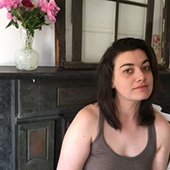 Produced within the
Produced within the 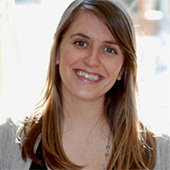
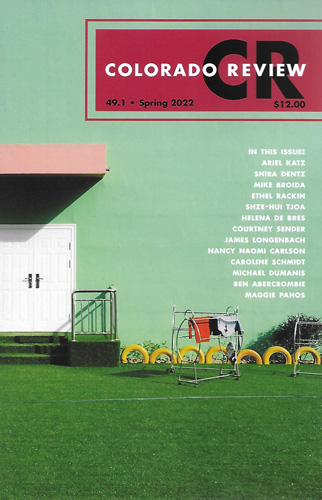 Recent posts include:
Recent posts include: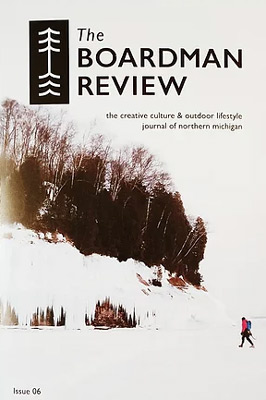 If your interest is in the outdoors as well as the arts, something fresh and new,
If your interest is in the outdoors as well as the arts, something fresh and new, 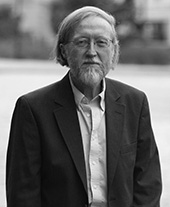 As I write now, during the middle days of February, hard upon our Spring 2019 deadline, the dice are still not fully cast for my successor or my exact departure date – and so I will be brief again: the earliest I would step away is 1 June, at which time our Summer 2019 issue will literally be in press and the preparation of the Fall 2019 contents will be in full swing, so my ghost will be around for at least some aspects of the latter. The goal for me, for the rest of the Georgia Review staff, and for the University of Georgia, is a transition that will be as smooth as possible for our submitters, contributors, and readers.
As I write now, during the middle days of February, hard upon our Spring 2019 deadline, the dice are still not fully cast for my successor or my exact departure date – and so I will be brief again: the earliest I would step away is 1 June, at which time our Summer 2019 issue will literally be in press and the preparation of the Fall 2019 contents will be in full swing, so my ghost will be around for at least some aspects of the latter. The goal for me, for the rest of the Georgia Review staff, and for the University of Georgia, is a transition that will be as smooth as possible for our submitters, contributors, and readers.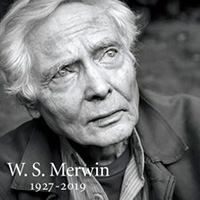 The Kenyon Review
The Kenyon Review Glimmer Train March 2019 Bulletin
Glimmer Train March 2019 Bulletin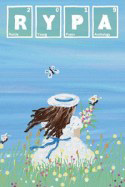 Subscribers to
Subscribers to 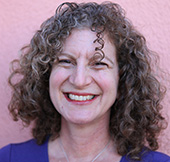 Since there is always a lag time created between contemporary news issues and publications of poetry,
Since there is always a lag time created between contemporary news issues and publications of poetry, 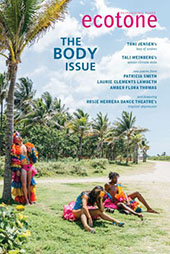 “Oh, plastic, scourge of the Anthropocene, shaped into adorable shapes and dyed multifarious colors; plastic, who will be with us forever: it’s easy to forget about you, but when I remember you’re here, I’m annoyed and freaked out all at once.”
“Oh, plastic, scourge of the Anthropocene, shaped into adorable shapes and dyed multifarious colors; plastic, who will be with us forever: it’s easy to forget about you, but when I remember you’re here, I’m annoyed and freaked out all at once.”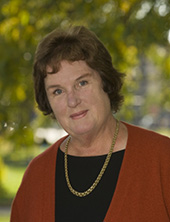 “All of the work in this special Fall issue of
“All of the work in this special Fall issue of  Co-edited by Nicole Oquendo [pictured], Editor Lisa Roney introduces the newest issue of
Co-edited by Nicole Oquendo [pictured], Editor Lisa Roney introduces the newest issue of 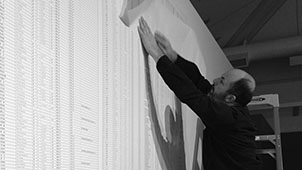 In his discussion, Boyden explains how, had it not been for Chinese artist Ai Weiwei, the names of these children, and the government being held accountable for the shoddy construction of the schools where these children were killed, would have been lost.
In his discussion, Boyden explains how, had it not been for Chinese artist Ai Weiwei, the names of these children, and the government being held accountable for the shoddy construction of the schools where these children were killed, would have been lost.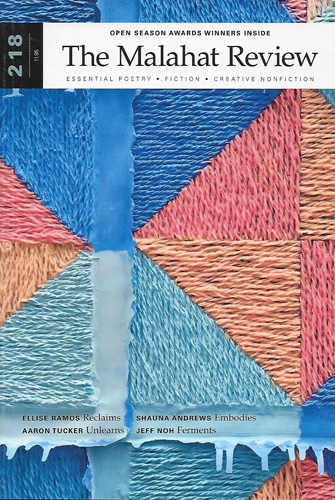 The newest issue of
The newest issue of